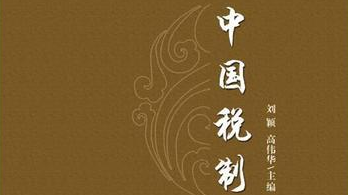
当前课程知识点:主题英语 > 07 MONEY MATTERS > 7.4 Spend Less? Earn More? Which Is the Better Path? > 7.4 Spend Less? Earn More? Which Is the Better Path?
大家好!本节将会就七单元的主题展开批判性思维训练。
“少花钱?多挣钱?哪条才是王道?”
基本上只要是任何有关个人理财的文章都会同意:
最好的理财方式是拉大收入和支出间的差距。
要达到目的有两种主要的方式:
要么挣得更多、要么花得更少。
不论选择哪种方式,都可以拉大它们间的差距。
每种方法也各有其优缺点。
存钱的好处包括:
能够帮助年轻人树立节俭的观念;
能在短时间内存一些钱。
存钱的缺点是:
存钱的数额有限;
靠存钱发不了财。
赚钱的好处包括:
赚钱数额没有限制,你总可以再去赚钱。
赚的钱一定比存的钱要多得多。
赚钱的缺点包括:
在赚很多钱以前你要在教育上投入很多时间、精力;
与存钱相比,见效没有那么快。
现在我们采访一下杨先生,他有一个孩子,看看他对于年轻人的消费和理财有什么看法?
我知道你是一位父亲,对吧?
是的,我有个儿子,他差不多十一岁了。
难以置信!你看起来很年轻。
既然你是一位父亲,会花很多钱在你儿子身上吗?
绝对是,要知道现在养一个孩子是要花掉很多钱的。
现在几乎所有东西都很贵,食物、衣服、教育、医疗等等。
你觉得,你儿子总会影响你们买什么吗?
在某种程度上的确是。
你怎么看今天年轻人的购买力?
坦白说,年轻人在所有不同群体的人中拥有最强的购买力。
年轻人很年轻,相信未来一片光明。
他们觉得可以享受生活,当然更重要的是他们也不需要养家。
那也是为什么他们花钱比较大方的原因。
你认为较早地教育孩子们理财是很重要的吗?
当然,教孩子理财和教育他们好好说话、好好学习一样必要、同等重要。
你有教过自己的孩子理财吗?你是怎么做的呢?
是的,对于理财我并不知道一些具体的理论。
但是,我的确告诉我儿子可以为将来或买一些大东西适当存些钱。
他也是这么做的。
很好!你认为存钱是帮助年轻人走出财政危机的唯一途径吗?你认为多赚钱也是一条好路吗?
基本上来说,省钱和多赚钱同等重要。
我认为每个人都应该在这两者中寻求一种平衡。
假设说,如果一个人赚了很多钱,但同时花钱如流水,恐怕他也很难收支平衡。
相反,如果一个人太过于专注在省钱上,他就会变得很吝啬小气。我个人认为他可能很难讨人喜欢。
Ok, 谢谢。那么就年轻人的消费和理财您有什么建议吗?
我只有一条建议: "买你需要的东西,而不是你想要买的东西。"
Ok, 谢谢你接受今天的访问.
那么结论是什么?
少花钱和多挣钱是互补的策略。
两者都非常重要。
两者在不同的时期、以不同的方式发挥最大的作用。
学会了吗?对这些建议有什么看法?
能不能做出一些评价?
为什么不和你的同学朋友讨论看看你从本节中获得了多少有益的表达呢?
-1.1 Lexical Chunks Expressing Aims
--1.1 Lexical Chunks Expressing Aims
-1.2 Sentence Patterns for Research
--1.2 Sentence Patterns for Research
-1.3 An Introduction to Essay Writing
--1.3 An Introduction to Essay Writing
-1.4 An Introduction to MOOCs
--1.4 An Introduction to MOOCs
-1.5 Chinese Dragons
-Test 01
-2.1 Lexical Chunks for Dish, Flavor and Cookware
--2.1 Lexical Chunks for Dish, Flavor and Cookware
-2.2 Sentence Patterns for Describing Problems
--2.2 Sentence Patterns for Describing Problems
-2.3 Four Bases for Revising Essays (1): Unity and Support
--2.3 Four Bases for Revising Essays (1): Unity and Support
-2.4 The 8 Great Cuisines of China
--2.4 The 8 Great Cuisines of China
-2.5 Chinese Dumplings
-Test 02
-3.1 Lexical Chunks for Mental Health
--3.1 Lexical Chunks for Mental Health
-3.2 Three Most Common Types of Sentence-skills Errors in Writing
--3.2 Three Most Common Types of Sentence-skills Errors in Writing
-3.3 Point and Support in Essay Writing
--3.3 Point and Support in Essay Writing
-3.4 The Relationship Between Health and Stress
--3.4 The Relationship Between Health and Stress
-3.5 Acupuncture and Other TCM Therapies
--3.5 Acupuncture and Other TCM Therapies
-Test 03
-4.1 Lexical Chunks for Giving Opinions
--4.1 Lexical Chunks for Giving Opinions
-4.2 Dependent-Word Fragments
--4.2 Dependent-Word Fragments
-4.3 Four Bases for Revising Essays (2): Coherence and Sentence Skills
--4.3 Four Bases for Revising Essays (2): Coherence and Sentence Skills
-4.4 Creative Problem Solving
--4.4 Creative Problem Solving
-4.5 Chinese Kung Fu
-Test 04
-5.0 Introduction: Bilingual Education
--5.0 Introduction: Bilingual Education
-5.1 Prefixes Related to Numbers
--5.1 Lexical Learning by Introducing Prefixes Related to Numbers
-5.2 Sentence Patterns for Giving Definitions
--5.2 Sentence Patterns for Giving Definitions
-5.3 How to Give Definitions in Essay Writing
--5.3 How to Give Definitions in Essay Writing
-5.4 The Importance of Language Learning
--5.4 The Importance of Language Learning
-5.5 Chinese Characters
-Test 05
-6.0 Introduction: Love and Marriage
--6.0 Introduction: Love and Marriage
-6.1 Lexical Chunks: Cultural Words Related to Chinese Weddings
--6.1 Lexical Chunks: Cultural Words Related to Chinese Weddings
-6.2 Sentence Pattern: Should Passive Voice be Encouraged in Writing?
--6.2 Sentence Pattern: Should Passive Voice be Encouraged in Writing?
-6.3 How to Write a Supported Opinion Paragraph?
--6.3 How to Write a Supported Opinion Paragraph?
-6.4 Which is Your Idea of Marriage, Love-oriented or Money-oriented?
--6.4 Which is Your Idea of Marriage, Love-oriented or Money-oriented?
-6.5 Chinese Chopsticks
-Test 06
-7.0 Introduction: Budget
-7.1 Lexical Chunks: The Key Word “Deposit”
--7.1 Lexical Chunks: The Key Word “Deposit”
-7.2 Sentence Patterns on Expressing Purposes
--7.2 Sentence Patterns on How to Express Purposes
-7.3 Zooming in Expository Texts
--7.3 Reading and Scaffolding Expository Texts
-7.4 Spend Less? Earn More? Which Is the Better Path?
--7.4 Spend Less? Earn More? Which Is the Better Path?
-7.5 Chinese Seal
-Test 07
-8.1 Lexical Chunks for Space Exploration
--8.1 Lexical Chunks for Space Exploration
-8.2 Sentence Pattern: There be
--8.2 Sentence Pattern: There be
-8.3 Superordinate and Subordinate in Writing
--8.3 Superordinate and Subordinate in Writing
-8.4 Critical Thinking: Why Do We Explore Space?
--8.4 Critical Thinking: Why Do We Explore Space?
-8.5 Chinese Era
-Test 08
-9.1 Lexical Chunks for Immigration
--9.1 Lexical Chunks for Immigration
-9.2 Sentence Logic: Negation
--9.2 Sentence Logic: Negation
-9.3 Exemplification in Writing
--9.3 Exemplification in Writing
-9.4 Critical Thinking: Pros and Cons of Multiculturalism
--9.4 Critical Thinking: Pros and Cons of Multiculturalism
-9.5 Chinese Silk
-Test 09
-10.1 Lexical Chunks for Disasters
--10.1 Lexical Chunks for Disasters
-10.2 Sentence Writing: Inanimate Subject
--10.2 Sentence Writing: Inanimate Subject
-10.3 Essay Writing: A Drawing Opening
--10.3 Essay Writing: A Drawing Opening
-10.4 Critical Thinking: Humanity Vs Nature
--10.4 Critical Thinking: Humanity Vs Nature
-10.5 Chinese Classical Garden
--10.5 Chinese Classical Garden
-Test 10
-11.0 Introduction: Reading habits
--11.0 Introduction: Reading habits
-11.1 Lexical Chunks for Favorite Readings
--11.1 Lexical Chunks for Favorite Readings
-11.2 Sentence Patterns for Sharing Reading Experience
--11.2 Sentence Patterns for Sharing Reading Experience
-11.3 From Assumption to Opinion in Essay Writing
--11.3 From Assumption to Opinion in Essay Writing
-11.4 Appreciation of “On Studies” by Francis Bacon
--11.4 Appreciation of “On Studies” by Francis Bacon
-11.5 Four Treasures of the Study
--11.5 Four Treasures of the Study
-Test 11
-12.1 Lexical Chunks for Paraphrasing Advantages & Disadvantages
--12.1 Lexical Chunks for Paraphrasing Advantages & Disadvantages
-12.2 Sentence Patterns for Agreement & Disagreement
--12.2 Sentence Patterns for Agreement & Disagreement
-12.3 Presenting Different Ideas in Essay Writing
--12.3 Presenting Different Ideas in Essay Writing
-12.4 Debating: Lingua Franca--Beneficial or Detrimental?
--12.4 Debating: Lingua Franca--Beneficial or Detrimental?
-12.5 Chinese Antithetical Couplets
--12.5 Chinese Antithetical Couplets
-Test 12
-13.0 Introduction: Unforgettable Events
--13.0 Introduction: Unforgettable Events
-13.1 Lexical Learning by Analyzing Prefix and Suffix
--13.1 Lexical Learning by Analyzing Prefix and Suffix
-13.2 Sentence Patterns for Describing Unforgettable Events
--13.2 Sentence Patterns for Describing Unforgettable Events
-13.3 Flashback in Story Writing
--13.3 Flashback When Writing a Story
-13.4 Interpreting Competitive Culture
--13.4 Interpreting Competitive Culture
-13.5 Chinese Weiqi
-Test 13
-14.1 How do you feel about extreme sports? List your reasons.
--14.1 Lexical Chunks for Extreme Sports
-14.2 How to Use Parallelism
-14.3 How to Write a Concluding Paragraph
--14.3 How to Write a Concluding Paragraph
-14.4 Taking Risks
-14.5 Peking Opera
-Test 14
-15.1 Lexical Chunks for the Relationship between Happiness and Happiness Genes
--15.1 Lexical Chunks for the Relationship between Happiness and Happiness Genes
-15.2 How to Expand the Basic Sentence with Participles and Participle Phrases
--15.2 How to Expand the Basic Sentence with Participles and Participle Phrases
-15.3 Comparison and Contrast
--15.3 Comparison and Contrast
-15.4 The Road to Happiness
-15.5 Chinese Taoism
-Test 15
-16.1 Lexical Chunks for the Linguistic Difference between Men and Women
--16.1 Lexical Chunks for the Linguistic Difference between Men and Women
-16.2 How to Vary Sentences by Using Adverb Modifiers
--16.2 How to Vary Sentences by Using Adverb Modifiers
-16.3 How to Write an Introductory Paragraph
--16.3 How to Write an Introductory Paragraph
-16.4 How to Avoid Misunderstanding between Men and Women
--16.4 How to Avoid Misunderstanding between Men and Women
-16.5 Chinese Idioms
-Test 16
-Final Test







